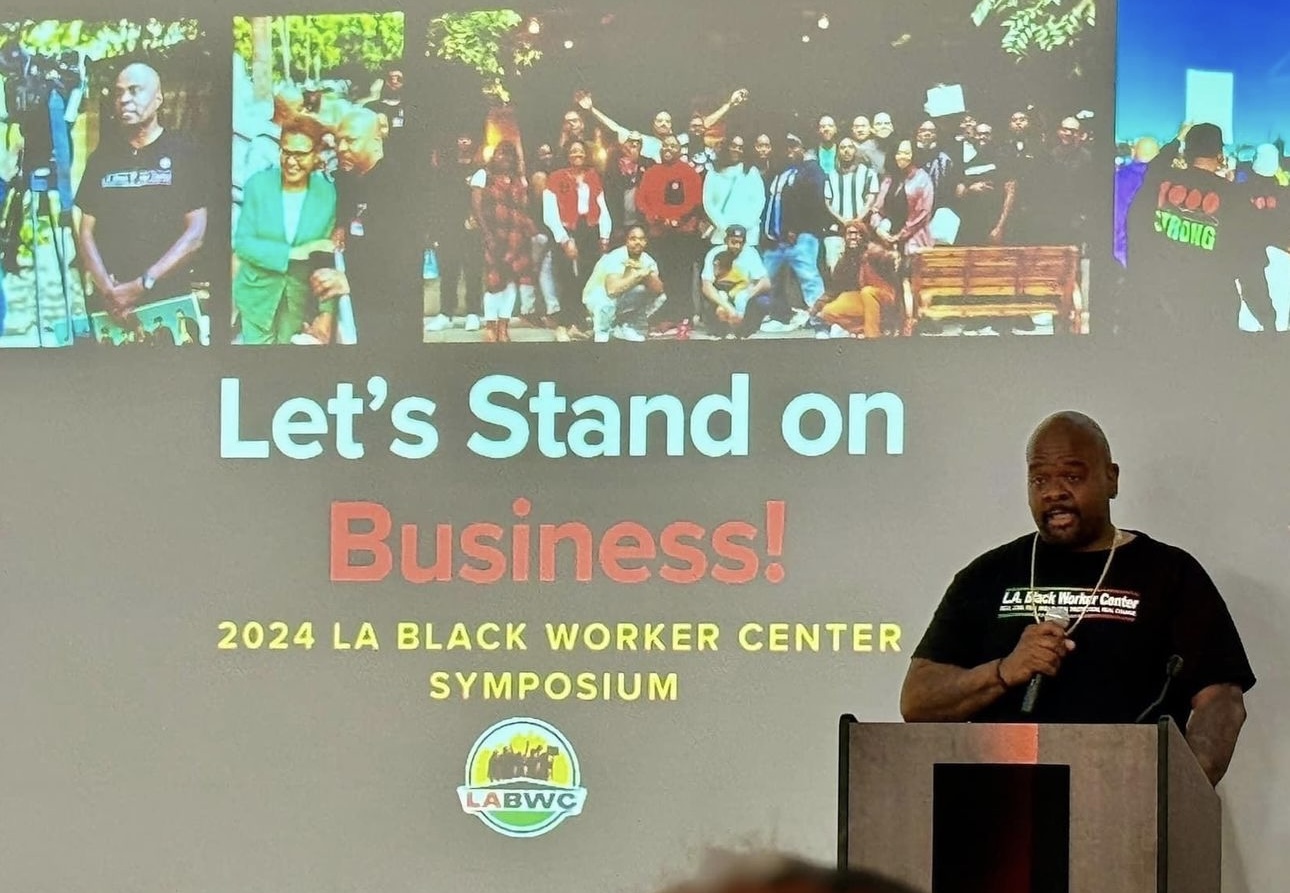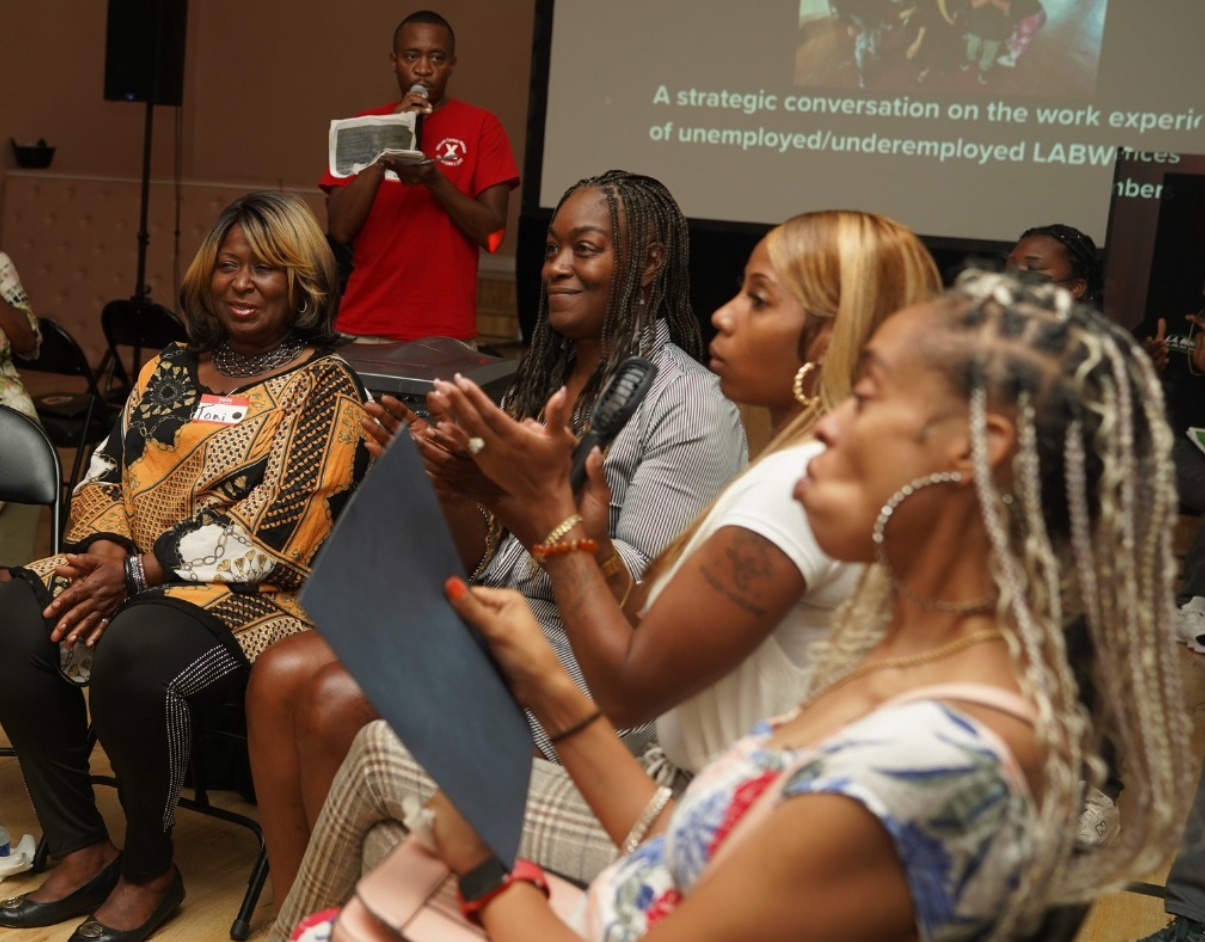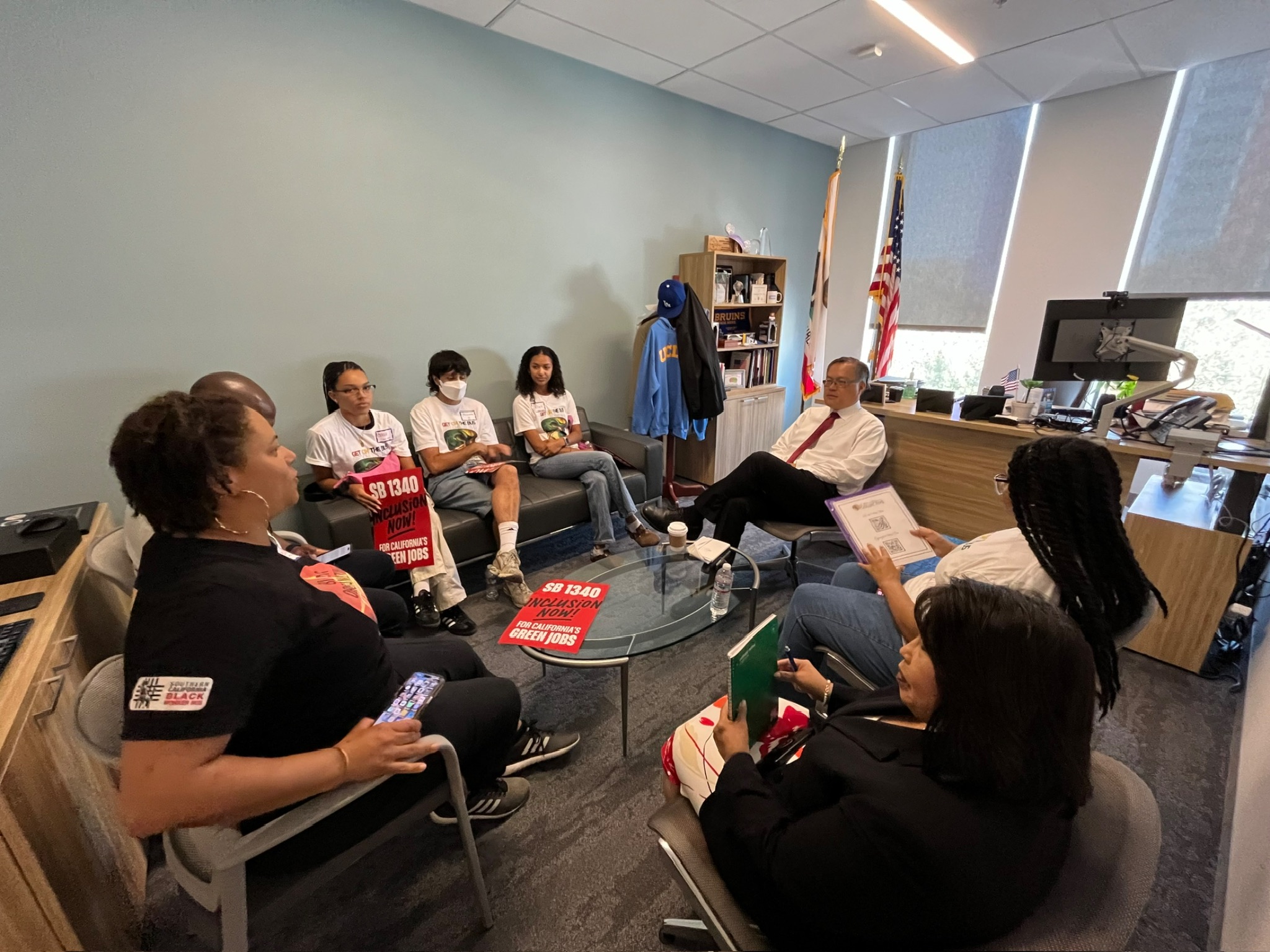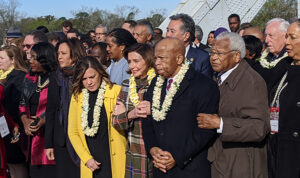
By: Simone Frank
From Vacaville, California, meet Bobbie Sturge, a 2024 Freedom Fellow with the Center for the Advancement of Racial Equity (CARE) at Work. Bobbie (she/her) brings a wealth of experience from her time volunteering, interning, and working within various labor unions. She saw the Freedom Fellowship as a chance to deepen her understanding of nonprofits dedicated to advancing Black worker justice — a space she hadn’t directly engaged with before.
Launched in summer 2021, the Freedom Fellowship offers an experiential learning opportunity that aims to build a bridge between students, labor leaders, union members, and field organizers in partnership with the Southern California Black Worker Hub and CARE at Work’s regional Black Worker Center (BWC) allies. This year’s 2024 Freedom Fellowship includes nine talented fellows placed at a regional Black Worker Center this summer to continue building Black Worker Justice.
Bobbie shares her transformative experience in the Freedom Fellowship, reflecting the insights she’s gained about the vital work being done to uplift and empower Black workers in Southern California.
What was the most impactful or memorable part of your experience during the fellowship?

The most impactful part of the fellowship was hearing the stories shared by members at the LABWC Symposium event and the lobby day. These stories were raw, full of struggle, but also radiated incredible strength and determination. Each person who shared their story was, in their own right, a leader — showing not only resilience but also the courage to advocate for change.

What struck me most was how deeply these stories impacted me. In hindsight, it reminds me of the Maya Angelou quote, “People will forget what you said, people will forget what you did, but people will never forget how you made them feel.” These stories made me feel unbelievably inspired. I believe that to organize with people, you have to truly understand what they are going through. These personal narratives gave me that understanding, grounding me in the lived experiences of the community and reminding me that effective organizing begins with empathy and genuine connection. I’ll carry those feelings with me as I move forward.
Tell us more about your experience advocating for worker rights at the state capitol. What was your biggest takeaway?
Although I have had previous experiences meeting with state representatives for previous internships, this was my first time participating in a lobby day, and it was an incredibly powerful experience — one that reminded me of the significance of amplifying community voices in policy spaces. I met everyone in Sacramento and we broke off into small groups which allowed us to engage in direct, face-to-face conversations with state representatives. What struck me most was the power of personal stories. When people shared their own experiences, it shifted the conversations from abstract policy debates to deeply human issues. I felt that these personal narratives were what resonated most with the representatives and made them truly understand the stakes of SB1340.

One of the biggest lessons I took from this experience was the importance of persistence and coalition-building. Seeing that many representatives were already familiar with and supported the bill showed me that organizing efforts — those long hours of storytelling, relationship-building, and advocacy — had already made an impact. Advocacy isn’t just about a single day of lobbying; it’s about creating a continuous, collective push that lawmakers cannot ignore.

The experience also taught me that the people most affected by policies must be at the forefront of advocacy. Watching individuals share their stories reminded me that legislation should never be divorced from the lived realities of those it impacts. It was inspiring to see that the bill passed, knowing that we contributed, even if in a small way.
How did your work during the fellowship create an impact on the community?
During the fellowship, I was placed at CARE at Work, where our work was centered on research. While research may not seem like a direct part of organizing, it is truly the seed from which all impactful work grows. Our research provided the foundation — the essential knowledge and understanding — needed to build effective strategies for advancing worker justice.
By gathering information, identifying critical needs, and mapping out existing resources, we laid the groundwork for future advocacy efforts. This kind of work ensures that initiatives are based on real community needs, not assumptions and that they can be targeted in the most effective way possible. Change starts with understanding. The work we did at CARE at Work was a step toward understanding the barriers faced by Black workers in Southern California, and that understanding will ripple outward, informing organizers, programs, campaigns, and policies that can make a real difference in people’s lives.
What was the most important lesson you learned as a Freedom Fellow?
Coming into the fellowship I knew that nothing is ever freely given — especially to Black communities — but seeing firsthand just how much work, sacrifice, and persistence goes into even the smallest victories was a profound reminder. Witnessing the struggles and dedication of passionate organizers showed me that change only happens because people refuse to accept the status quo. This understanding deepened my appreciation for the progress made so far and reinforced my commitment to continue the fight for justice and equity, knowing that there is still much work ahead.
I also grew in my understanding that organizing is not limited to the professional sphere; it is something we carry with us in all parts of our lives. We need to organize and educate in our own families and neighborhoods, empowering others to become leaders themselves. The goal isn’t just to advocate for people but to work alongside them so that they, too, can continue the cycle and help others rise. This is how we build enduring change — by creating leaders and empowering communities to take their futures into their own hands.




